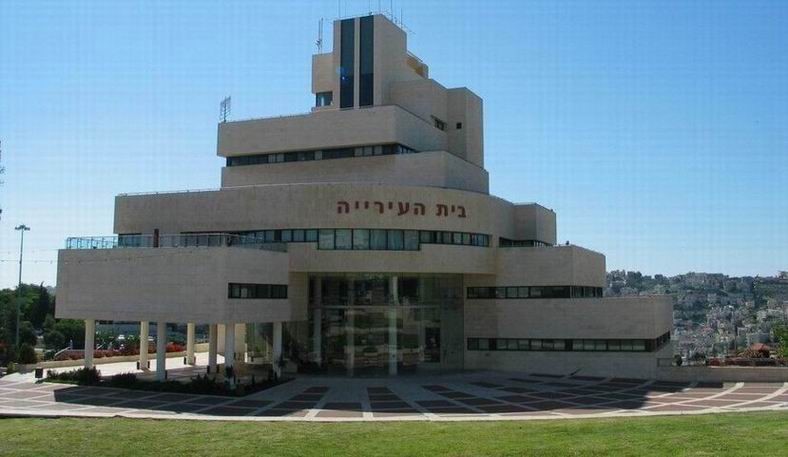Jewish and Arab residents of Upper Nazareth (“Nazareth Illit,” in Hebrew) last week voted to change the name of the northern city, in a move the mayor said was designed to put an end to widespread confusion with the neighboring Arab city of Nazareth. The deputy mayor of Upper Nazareth, Dr. Shawki Awauda (Hadash), said it was “time to give the city an independent identity, and put an end to the chronic confusion” between the city and its neighbor, historic Nazareth.

The municipal building of Upper Nazareth, now known as Nof Hagalil, which overlooks Arab Nazareth, in the background. (Photo: Wikipedia)
In a municipal referendum held Tuesday, June 18, nearly 80 percent of residents voted in favor of changing the city’s name to Nof Hagalil, meaning “View of the Galilee” or “Galilean View,” in Hebrew. The results of the vote were announced Friday, June 21.
Hadash MK Yousef Jabareen hailed the name change, so long as it does not contribute to further separation between the two cities and merely perpetuate the economic discrimination against the historic, Arab city. “There is only one Nazareth, and that is the Arab Nazareth, one of the most important cities in the world,” he said, adding that Upper Nazareth was established on land expropriated from local Arabs and purposely on lands that overlook and strategically control the historic city.
When it was founded in 1957 by then-prime minister David Ben-Gurion as part of government plans to “Judaize” the Galilee, Upper Nazareth was allocated some 32,500 dunams (32.5 sq. km.) for a population that today numbers about 40,000 (3/4 of whom are Jews or other Zionist immigrants and the remainder Arabs). By contrast, historical Nazareth, the largest Arab-Palestinian city in Israel, has municipal jurisdiction over only 14,000 dunams (14 sq. km.), but with a current population of 76,000, 69% Muslims and 31% Christians. Or in other words, Upper Nazareth’s municipal jurisdiction has over 800 sq.m. per resident, compared with historic Nazareth which controls only about 180 sq.m. per resident. This makes urban congestion in the lower city more than 4 times that of the upper.
“Nazareth was left behind in the socioeconomic index…,” said Jabareen, “so we must ensure that this name change does not deepen discrimination or the economic gap between the two cities.” Given the above objective geographical factors, any reducing of inequality, economic or otherwise, will involve a long, difficult and uphill struggle to undo the systematic privileges enjoyed by one population at the expense of the other. If anything, the alleged confusion between the two Nazareths to be superficiality ameliorated by a name change of one is liable to make the basic political reality on the ground even less clear to the publics involved.


